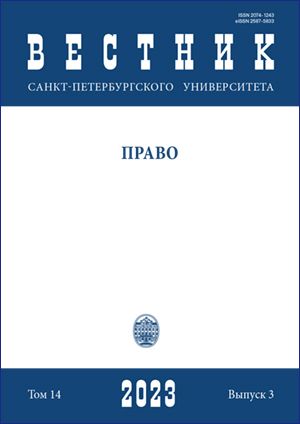Non-use of subjective rights in Russian criminal proceedings: Causes and consequences
DOI:
https://doi.org/10.21638/spbu14.2023.305Abstract
The modern paradigm of criminal proceedings, which is based on the idea of the primacy of the protection of the individual, necessitates not only endowing the participants in the criminal process with a set of rights that allow them to defend their interests, but also ensuring the proper level of guarantees for the possibility of their implementation. The article examines the social and legal significance of the use of rights by participants in criminal proceedings, highlights and analyzes the possible causes and consequences of non-use. The author comes to the conclusion that the state and society are interested in the active use of their rights by authorized subjects. In criminal proceedings, the need for such an implementation is determined by the expansion of discretion and adversarial principle. As a result of the study, it was found that the non-use of subjective right in criminal proceedings can be both due to the will of the person (there is a waiver of subjective right), and not depend on it and be the result of lawful or unlawful behavior of representatives of public authorities conducting criminal proceedings. The reason for non-realization of a subjective right in a criminal process may also be the improper performance by officials of their duties to ensure that participants can exercise their rights, abuse of power or abuse of power. The article concludes that these reasons cause different social and legal consequences of non-use of subjective rights: both positive and negative.
Keywords:
ensuring rights, individual rights guarantees, subjective rights, subjective rights waiver, dispositivity of criminal proceedings
Downloads
References
Downloads
Published
How to Cite
Issue
Section
License
Articles of "Vestnik of Saint Petersburg University. Law" are open access distributed under the terms of the License Agreement with Saint Petersburg State University, which permits to the authors unrestricted distribution and self-archiving free of charge.






